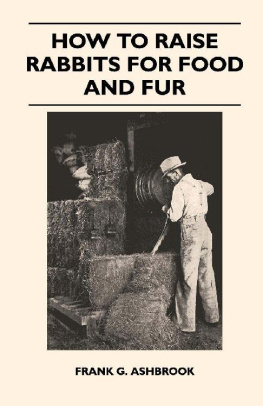The Industrial
Revolution
by Arnold Toynbee
with a Preface by Arnold J. Toynbee
The Industrial Revolution
Preface to the Beacon Paperback Edition
This book is the work of a man who died at the age of thirty. He did not live to write even this one small book with his own hand. It was written for him, after his death, by his friends and pupils, out of the notes they had taken of a course of lectures that he had delivered in 1880-1881 in the University of Oxford and out of his own notes on the subject. This was, for them, a labour of love, and they performed it so skilfully that the book which they have produced bears the authentic stamp of Arnold Toynbees personality. Because of this personality which shines through the words, this book is one of that small number of books, dealing with matters of fact, that share the privilege of poetry. It will always remain fresh, and therefore will always continue to find readers.
Though Arnold Toynbees account of the Industrial Revolution does not become out of date, it does, of course, date. One of the features of the book that gives it a lasting interest is that it is a pioneer work. Toynbee was the first economic historian to think of, and to set out to describe, the Industrial Revolution as a single great historical event, in which all the details come together to make an intelligible and significant picture. In doing this, he created the frame within which all subsequent work on the Industrial Revolution has been carried out. The work done during the seventy years since the publication of Toynbees book has been great in quantity and fine in quality. The evidence has been repeatedly worked over and revised. Masses of additional statistics have been collected and analysed. And, in this sense, Toynbees work has been superseded long ago. Yet, as a masterly first reconnaissance of a very important field of historical study, this pioneer work by a young man is still as much alive as ever it was.
If it is true that The Industrial Revolution is a reflexion ofArnold Toynbees personality, the reader may feel curious to learn what Arnold Toynbee was like. Though I am his nephew, I did not have the chance of knowing him myself. I was named for him because I happened to be the first male child bearing his surname to be born into his immediate family after his death in 1883. I did, however, come to know him rather well at second hand, as he appeared in the eyes of people who had known him personally and intimately. His widow, my aunt Charlotte Toynbee, outlived him by nearly fifty years, and several of his colleagues at Balliol College, Oxford, where he had been a tutorial Fellow (that is, a teaching member of the governing body of the college) lived to see the First World War. I was a member of the same college, in my turn, from 1907 to 1915, first as an undergraduate and then as a tutorial Fellow, like my uncle; and the men who had been his contemporaries used often to talk about him and to try to convey to me what it was about him that had made so great a mark at so early a stage in his short life. They all agreed that it was difficult to put their impression of him into words; yet their words did bring out this impression rather clearly, to my mind. The vision that I caught was one of simplicity, sincerity, disinterestedness, and ardour; and these qualities combined to strike an unmistakable note of greatness.
Arnold Toynbee would have made his name simply by virtue of what he achieved. To have produced this book, and to have inspired the foundation of Toynbee Hall as a posthumous memorial to him, were notable achievements for a man who died at thirty. But it was evident to me that his surviving contemporaries revered and loved him for being what he was, even more than for doing what he did.
Death overtook Arnold Toynbee unexpectedly and abruptly. He was in the middle of a debating campaign, in the Lincoln-Douglas manner, with Henry George, the American advocate of a single tax on land, when he was suddenly carried off by a mysterious disease that was diagnosed as brain fever in the medical language of the day. Medicine has made great strides since then, and one may speculate whether, to-day, his life might not have been saved. What might he not have gone on to achieve if he had lived to sixty-six? This tale of years comes into my mind because, at the moment of writing this preface, I myself am in my sixty-seventh year. How famous Arnold Toynbee was at thirty; and how utterly obscure I, for example, among others should have been if I had died at that age. What might not Arnold Toynbee have done if he had lived thirty-six years longer? I have often wondered about this; but I am also sure that, like a truly inspired poet who dies young, Arnold Toynbee was, in one sense, independent of the dole of time. In so far as he achieved greatness, it was through being what he was, and he was his characteristic self already in early manhood. One became aware of this as one listened to his contemporaries talking about him.
ARNOLD J. TOYNBEE
Contents
, by Arnold J. Toynbee
I
INTRODUCTORY
THE subject of these lectures is the Industrial and Agrarian Revolution at the end of the eighteenth and beginning of the nineteenth centuries. The course is divided into three parts. The first deals with Adam Smith and the England of his time. It will describe England on the eve of the Industrial Revolution, and the system of regulation and protection of industry as it existed in 1760. It will give also an outline of Adam Smiths book, its aims and character, and especially his theory of free trade. The second part will group itself round the work of Malthus, who dealt not so much with the causes of wealth as with the causes of poverty, with the distribution of wealth rather than with its production. It will describe England in the midst of the Industrial Revolution, and will inquire into the problem of pauperism and the subjects connected with it. The third part will be associated with the name of Ricardo, and will deal with England at the time of the Peace. It will discuss the doctrine of rent and wages together with certain theories of economic progress, and will cover the questions of currency, so much agitated at that period, and the history of the commercial and financial changes which followed the Peace.
I have chosen the subject because it was in this period that modern Political Economy took its rise. It has been a weakness of the science, as pursued in England, that it has been too much dissociated from History. Adam Smith and Malthus, indeed, had historical minds; but the form of modern text-books is due to Ricardo, whose mind was entirely unhistorical. Yet there is a double advantage in combining the two studies. In the first place Political Economy is better understood by this means. Abstract propositions are seen in a new light when studied in relation to the facts which were before the writer at the time when he formulated them. So regarded they are at once more vivid and less likely to mislead. Ricardo becomes painfully interesting when we read the history of his time. And, in the second place, History also is better understood when studied in connection with Political Economy; for the latter not only teaches us in reading History to look out for the right kind of facts, but enables us to explain many phenomena like those attending the introduction of enclosures and machinery, or the effects of different systems of currency, which without its assistance would remain unintelligible. The careful deductive reasoning, too, which Political Economy teaches is of great importance to the historian, and the habits of mind acquired from it are even more valuable than the knowledge of principles which it gives, especially to students of facts, who might otherwise be overwhelmed by the mass of their materials.




